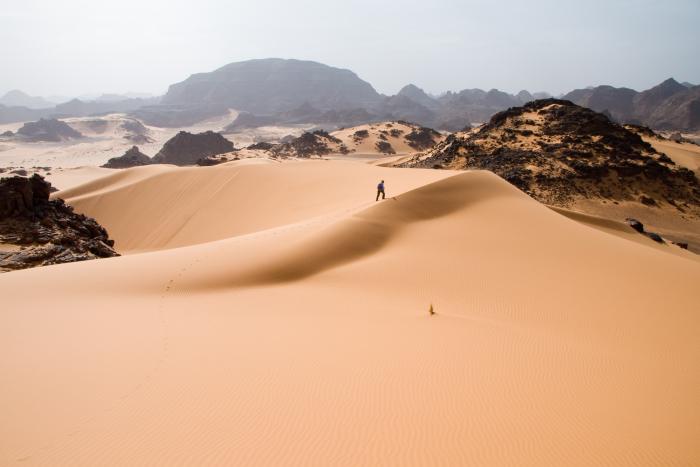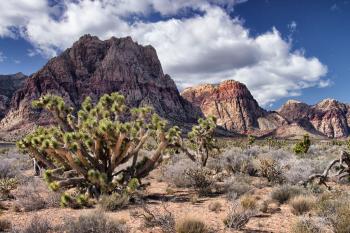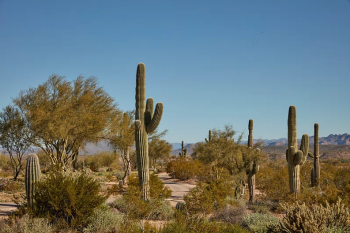
Deserts are areas of the Earth where there is very little precipitation. Deserts are found all around the world. Most deserts get less than ten inches of rain per year. Deserts can be hot or cold. There are four deserts in America. Despite being hard to live in, deserts are full of life. Many plants and animals have adapted to live there. Some plants such as the mesquite tree have very long roots that help reach water under the ground. Others, like the cactus, can store water in their stems. Most desert animals stay in shady areas during the day and come out to eat at night. Animals that are active at night are called nocturnal animals. People also live in deserts. In North American deserts, many people live in houses made of adobe or mud bricks. These bricks provide insulation from the heat and cold. Would you want to live in a desert?
These articles are written by library staff using library resources such as books, eBooks, and databases. Information can vary from book to book and database to database. Tickle Your Brain is meant to be a jumping off point for starting conversations about new topics of learning. It is not to be used as an authoritative resource.


- Deserts cover more than one-fifth of Earth's land area
- The largest desert on Earth is Antarctica
- The Sonoran Desert in America once reached 134.1°F
- Sand covers 10 to 20 percent of most deserts
- The Atacama Desert in Chile averages less than 0.5 inch of rain yearly
- Life in a Desert by Carol K. Lindeen
- A Day in the Life of the Desert by Roxie Munro
- Deserts by Gail Gibbons
- Way Out in the Desert by T.J. Marsh
